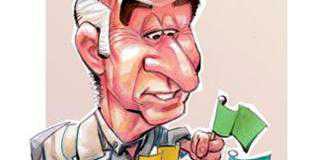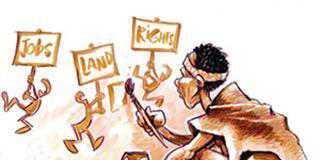When it comes to agriculture, there are many challenges and opportunities. How we choose to respond to these will determine the future of agriculture in this country. It’s important, for example, to start implementing new technologies to improve productivity, but at the same time agriculture’s future will rely on the implementation of greener technologies. We must ensure that agricultural growth doesn’t happen at the expense of South Africa’s future, but ultimately to the benefit of the whole continent.
Food prices set to increase
The world population is set to rise by almost a third to 9 billion over the next 20 years. There’s also a growing middle class, especially in emerging economies like China and India. Currently, an estimated 20% of the world population can be regarded as middle class, and predictions are that this will increase to over 40% within the next 20 years. This means purchasing power will double over the next 20 years, leading to higher food demand, which will drive the prices of agricultural products upwards.
More investment in agriculture
In the past capital came directly from the state to farmers in the form of subsidies. Now investors from outside the sector are investing in agricultural land and agricultural infrastructure development, which is good news for Africa, as the continent has many untapped resources and a desperate need for infrastructure development. Africa has 20% of the world’s arable land, but is currently only producing about 10% of the planet’s food. That means there’s a lot of opportunity for growth. And South Africa can play an important role in Africa’s development, not least because it has a sophisticated agribusiness sector.
A valuable resource
While there’s good opportunity for agricultural growth, water is getting scarcer and it’ll have to be carefully managed, especially in South Africa. As water becomes scarcer it’ll also become more expensive. So its imperative to use water more efficiently to protect the resource, and to reduce input costs.
But water-scarcity isn’t the only problem. The quality of our water is increasingly worrying, and something that should be addressed by all roleplayers sooner rather than later. In the past, farmers were perceived as custodians of nature, but these days they’re often seen as the ones responsible for pollution. The sector should therefore endeavour to implement more sustainable agricultural practices. Agriculture can no longer afford to be seen as a sector that takes more out of the earth than it puts back.
Low investor confidence
Investor confidence in South African agriculture is probably at the lowest level it’s been in a very long time. There are many reasons for this. Most notable are the concerns regarding security, the impact of climate change and political uncertainties. But I believe we’re at a crossroads. Government seems to have the will to improve confidence in the sector. But they should realise this isn’t the time for words, it’s time for action.
Bigger farms, fewer farmers
Farms are getting bigger as farmers increase their businesses to increase profitability. As a result we have fewer farmers, and that means the amount of farming expertise in the country is becoming less.
An agricultural sector where only the largest producers can survive in the market ultimately won’t be sustainable. There’s also a marketing skills shortage in local agriculture. Other countries, producing lower quality products, beat us on the international markets because they’re better at marketing their products.
Government’s failure
It’s no secret our government is failing to provide adequate services on a national, provincial and municipal level. Even those in government will admit this. But this doesn’t have to stand in the way of progress. We need to realise we no longer live in a time when the future depends only on government. We as citizens should take control of our own future, and each sector must look after itself. We’re living in a time when the government who rules least, rules best.
Requiring special attention
Some of the “uglier” challenges faced by the agricultural sector include:
- The environment. The careless way in which we’ve engaged with nature has caused it to become very unstable. Desperate action is needed to lessen the negative impact of progress and development on the environment.
- Rural safety. Urgent intervention is needed to solve this problem in South Africa. It’s not only rural communities and farmers who suffer as a result of it – it affects the whole country.
- Small-scale failures. There should be a place for small-scale farming in South Africa, but instead it’s become a poverty trap. The sector will have to rediscover the role small-scale farming can play and then revive it, as it can play an integral role in rural development.
- Treatment of workers. Agriculture won’t have a bright future if it pays labourers less than other sectors. A business built on cheap labour is bound to come crumbling down at one point or another.
- Finally, one of the most worrying trends is entitlement, or “irrational exuberance”. It’s the responsibility of all South Africans, especially those in leadership positions, to curb this trend.
It’s a sickness in our society that started in 1994 after our liberation. More people have become preoccupied with getting rich and living excessively. This growing greed for bigger and better things should be fought with a spirit of entrepreneurship and volunteerism.
Prof Mohammed Karaan is the dean of the agri-sciences faculty at the University of Stellenbosch and a member of the National Planning Commission. Contact him on 021 808 4737
or e-mail [email protected]. |fw
The views expressed in our weekly opinion piece do not necessarily reflect those of Farmer’s Weekly.













